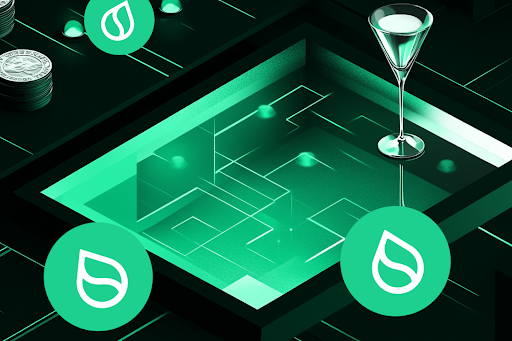ARTICLE AD BOX

- Solana is driving innovation in the energy sector by leveraging cryptocurrency to modernize outdated power grid infrastructure and promote the adoption of renewable energy.
- Key initiatives include Project Zero, a decentralized renewable energy network incentivizing energy efficiency, and Starpower, which rewards users for optimizing energy usage.
Solana is pushing for innovation in the energy sector with a focus on the intersection of renewable energy and crypto. In a recent post on X, Solana emphasized that the “energy sector is ripe for disruption.” The factors include outdated power grid infrastructure and rising energy demand. Hence, the team underscored the urgent need for a shift to clean energy sources.
Renewables like solar are becoming more cost-effective. However, the existing grid, designed for centralized energy production, faces challenges in integrating distributed energy sources. Thus, the Solana team highlighted the role of the crypto industry in facilitating this transition.
They stated, “Crypto can help by incentivizing renewable energy build-out, altering consumer behavior, coordinating across distributed energy sources, supporting P2P energy trading, and providing an open data layer.”
The energy sector is ripe for disruption.
Power grid infrastructure is outdated, energy demand is rising, and the need for a clean energy shift is urgent.
Renewables like solar are getting cheaper, but their distributed nature challenges the existing grid, which is built for… pic.twitter.com/EOOYL6HCF3
— Solana (@solana) September 26, 2024
Solana Banks on Project Zero
A key initiative driving this transformation is Project Zero. For context, it’s a decentralized renewable energy network powered by Solana and backed by $12 million in funding led by Multicoin Capital. According to the post, Project Zero aims to “use token incentives to drive the installation of distributed energy sources and shift consumption patterns.”
Thus, consumers will be rewarded for reducing energy use during peak demand periods, making them “mini energy traders.” In addition to Project Zero, Starpower, another decentralized energy network on Solana, seized the limelight. It is currently developing a decentralized virtual power plant (dVPP).
Moreover, Starpower rewards users for optimizing energy usage through hardware that includes a wall plug, battery storage, and EV-charging solutions. Furthermore, the project has already activated 13,500 devices on its network.
A third player, Srcful, is also working on a dVPP with a focus on solar panels and home batteries. Srcful is leveraging Helium IoT infrastructure, with its beta running on the Solana devnet. Meanwhile, Powergrid offers a platform to track and trade renewable energy sources.
Powergrid also reported that “a P2P solar energy trading pilot with Uttar Pradesh saw prices drop 43% below retail tariffs and spurred legislative changes.” Now, it’s migrating from its own SVM to the Solana mainnet.
Additionally, the Solana team encouraged innovators in the energy and crypto space to share their ideas. They invited users to “drop a DM with more about your product or share your ideas in the comments.” The post also highlighted the ongoing Solana Radar Hackathon by Colosseum, which has opportunities still available for participants.
Recent Developments Around SOL
Solana is currently rallying owing to the optimism around last week’s 50 bps Federal Reserve rate cut. At the time of writing, SOL price surged 4.81% to $158.72 on Friday, September 27. In addition, the Solana network adoption has grown with Franklin Templeton planning to launch a mutual fund on the blockchain, per the CNF report.
Moreover, Solana recently integrated with Chainflip, a decentralized avenue for cross-chain swaps. This integration will allow users to directly swap BTC to SOL and vice versa. In addition, it also facilitates Ethereum swaps.
In another such development, Solana Labs also announced a recent collaboration with Google Clouds to build a new gaming development API, reported CNF.
.png)
 1 month ago
7
1 month ago
7








 English (US)
English (US)